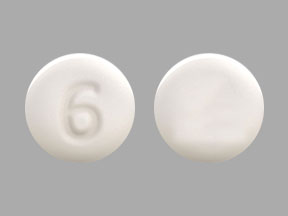Emflaza and Alcohol/Food Interactions
There are 2 alcohol/food/lifestyle interactions with Emflaza (deflazacort).
Deflazacort Food/Lifestyle
Moderate Food Interaction
GENERALLY AVOID: Grapefruit juice may increase the plasma concentrations of 21-desdeflazacort, the active metabolite of deflazacort that is formed by esterases after oral administration and further metabolized by CYP450 3A4 to several inactive metabolites. The proposed mechanism is inhibition of CYP450 3A4-mediated metabolism in the gut wall by certain compounds present in grapefruit. In general, the effect of grapefruit juice is concentration-, dose- and preparation-dependent, and can vary widely among brands. Certain preparations of grapefruit juice (e.g., high dose, double strength) have sometimes demonstrated potent inhibition of CYP450 3A4, while other preparations (e.g., low dose, single strength) have typically demonstrated moderate inhibition. Increased systemic exposure to 21-desdeflazacort may increase the risk of corticosteroid adverse effects such as hypercorticism, hyperglycemia, adrenal suppression, immunosuppression, hypertension, salt and water retention, electrolyte abnormalities, behavioral and mood disturbances, posterior subcapsular cataracts, glaucoma, bone loss, and growth retardation in children and adolescents.
MANAGEMENT: Deflazacort should not be administered with grapefruit juice.
References (1)
- Cerner Multum, Inc. "UK Summary of Product Characteristics."
Switch to consumer interaction data
Deflazacort High Blood Pressure (Hypertension)
Moderate Potential Hazard, Moderate plausibility
corticosteroids - fluid retention
Corticosteroids may cause hypernatremia, hypokalemia, fluid retention, and elevation in blood pressure. Large doses of any corticosteroid can demonstrate these effects, particularly if given for longer periods. Therapy with corticosteroids should be administered cautiously in patients with preexisting fluid retention, hypertension, congestive heart failure, and/or renal dysfunction. Dietary sodium restriction and potassium supplementation may be advisable.
References (11)
- (2001) "Product Information. Hydeltrasol (prednisolone)." Merck & Co., Inc
- (2001) "Product Information. Deltasone (prednisone)." Pharmacia and Upjohn
- (2001) "Product Information. Decadron (dexamethasone)." Merck & Co., Inc
- (2001) "Product Information. Hydrocortone (hydrocortisone)." Merck & Co., Inc
- (2001) "Product Information. Medrol (methylprednisolone)." Pharmacia and Upjohn
- (2001) "Product Information. Florinef Acetate (fludrocortisone)." Bristol-Myers Squibb
- (2001) "Product Information. Cortone Acetate (cortisone)." Merck & Co., Inc
- (2001) "Product Information. Kenalog (triamcinolone)." Bristol-Myers Squibb
- (2001) "Product Information. Celestone (betamethasone)." Schering Corporation
- (2021) "Product Information. Emflaza (deflazacort)." PTC Therapeutics, Inc., SUPPL-5
- (2024) "Product Information. Agamree (vamorolone)." Catalyst Pharmaceuticals, Inc.
Switch to consumer interaction data
Emflaza drug interactions
There are 583 drug interactions with Emflaza (deflazacort).
Emflaza disease interactions
There are 18 disease interactions with Emflaza (deflazacort) which include:
- (+) tuberculin test
- depression/psychoses
- diabetes
- electrolyte imbalance
- fluid retention
- GI perforation
- hyperadrenocorticalism
- hypothyroidism
- MI
- myopathy
- ocular herpes simplex
- ocular toxicities
- osteoporosis
- PUD
- strongyloidiasis
- thromboembolism
- hepatic impairment
- infections
More about Emflaza (deflazacort)
- Emflaza consumer information
- Check interactions
- Compare alternatives
- Pricing & coupons
- Drug images
- Side effects
- Dosage information
- During pregnancy
- Generic availability
- FDA approval history
- Drug class: glucocorticoids
- Breastfeeding
- En español
Related treatment guides
Drug Interaction Classification
| Highly clinically significant. Avoid combinations; the risk of the interaction outweighs the benefit. | |
| Moderately clinically significant. Usually avoid combinations; use it only under special circumstances. | |
| Minimally clinically significant. Minimize risk; assess risk and consider an alternative drug, take steps to circumvent the interaction risk and/or institute a monitoring plan. | |
| No interaction information available. |
See also:
Further information
Always consult your healthcare provider to ensure the information displayed on this page applies to your personal circumstances.


